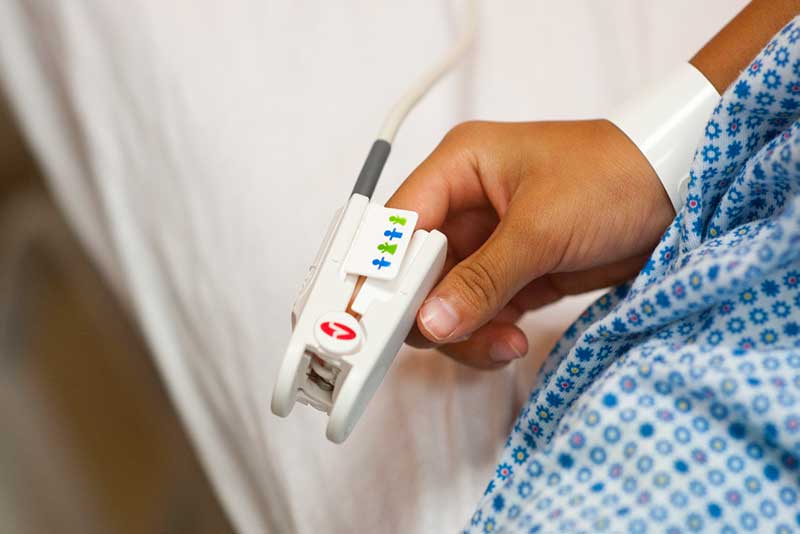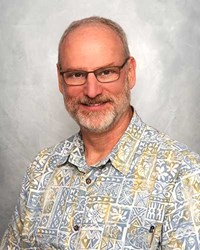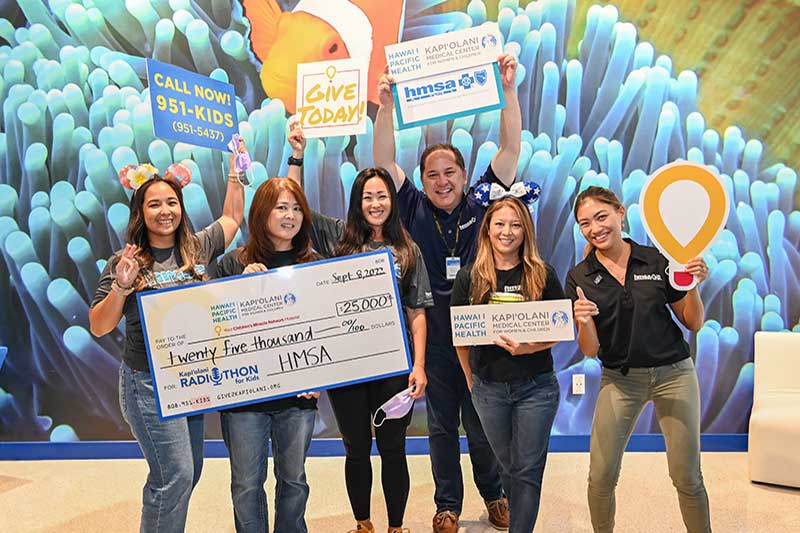Inspire 2023
Kapiolani: Creating a Lifesaving Connection
 A new program at Kapiolani creates a bridge connecting at-risk teenagers to the strength of community support
A new program at Kapiolani creates a bridge connecting at-risk teenagers to the strength of community support

When a child you love is hurt, you want to fix it right away. Often a quick cleaning, fun bandage and a kiss do the trick.
Other times, you know to visit your child’s doctor or, when something more serious occurs, surgeons and specialists guide you through treatments, operations and recovery as your little one’s body heals.
But when a child or teenager is struggling with mental health challenges —when the steps are not as clear cut — we may feel scared and powerless.
It is a terrible feeling that many in Hawaii are experiencing more often.
A Serious Situation
According to the Centers for Disease Control and Prevention (CDC), the number of youth in Hawaii who have hurt themselves, or reported feeling depressed or mental distress, increased in the past few years. Middle schoolers, especially, saw an upward shift, with more than 76% — which translates to over 20,000 local kids — saying they have felt sad, empty, angry, hopeless or anxious.
 The statistics are serious. For Bart Pillen, PhD, clinical psychologist and Hawaii Pacific Health’s chief of behavioral health, these are not just numbers. He and his team see the personal effects of the pandemic in patients they help every day.
The statistics are serious. For Bart Pillen, PhD, clinical psychologist and Hawaii Pacific Health’s chief of behavioral health, these are not just numbers. He and his team see the personal effects of the pandemic in patients they help every day.
“As the hub of pediatric care in Hawaii, Kapiolani has witnessed the rise in youth suicide,” Pillen said. “Even before 2020, suicide was the second-leading cause of death for Hawaii teenagers and young adults. There has always been a need for mental health services specifically for teens. But when the pandemic disrupted healthy family routines and functions, life became harder for them, even when they returned to school.
“Our youth are suffering, and the need has become much greater.”
At the same time, the gap between pediatric mental health needs and access to providers was growing in Hawaii and nationwide. As a result, many families who might have sought care through community services ended up in the Emergency Department (ED), including children identified by their primary care physicians as being at risk of depression and suicidal thoughts. In 2020, the CDC said the percentage of mental health-related ED visits for children 5 to 11 years old increased 24% across the U.S. The numbers were even higher for high schoolers, climbing 31% from 2019.
Building a Bridge of Support
At Kapiolani Medical Center for Women & Children, once a young patient is admitted, dedicated behavioral health teams immediately provide kids and their families lifesaving help. But access to mental health treatment following discharge can be unpredictable. So, even though the medical center staff ensures parents have information about providers and organizations in the community, Pillen continued to grow concerned about what would happen once they returned home.
“We don’t want teens waiting days or even months before receiving meaningful treatment,” Pillen said. “Our behavioral health team was already initiating targeted, responsive interventional help for patients. So, we decided to shift the paradigm and start a program at Kapiolani to provide that rapid access, close follow-up, and community connection for youth and their families.”
The Teen Resiliency Program is designed to do just that by creating a hub where kids and their guardians can get easy access to immediate, consistent and comprehensive care. Pillen based this first-in-Hawaii structure on Assertive Community Treatment teams that have seen success on the mainland. At the center is a licensed clinical social worker at Kapiolani who follows and assists families from the moment their child is identified until their structure of support is secure beyond the walls of the medical center. This includes providing ongoing therapy while engaging patients’ school counselors, primary care physicians, and connecting them to appropriate community organizations and services.
“It’s about bridging services and getting people and organizations who usually don’t consistently communicate to talk about this teenager who needs them,” Pillen said. “Together, they can be flexible and responsive, and the family will have a familiar contact person from Kapiolani who can guide them through the journey.”

Pillen notes that the Teen Resiliency Program is only coming into reality because of strong community support. HPH employees had the opportunity to give to the initiative during the 2022 Employee Giving Campaign. The Strong Foundation and G.N. Wilcox Trust also pledged support. One big surprise came during the 2022 Kapiolani Radiothon for Kids when Hawaii Medical Service Association (HMSA) announced it was gifting the program $25,000.
“HMSA is grateful to have opportunities to support initiatives like the Teen Resiliency Program,” said Jennifer Diesman, HMSA’s senior vice president of government policy and advocacy. “As a mother of two teenagers, youth mental health issues are extremely important to me. These investments can result in long-term solutions that provide access to effective mental health care services for those who need it most.”
If you are concerned about a child in your life, Pillen says to take action right away. Start a conversation and really listen. Call or text the Hawaii CARES line at 988 any day, any time. Reach out to your family doctor or pediatrician. Look to the trusted people and groups around your child, including sports teams, school and church, to share concerns and find support.
“Parents, friends, family members, aunties and uncles best understand the children they’re close with,” Pillen said. “They’re in the optimal position to let the child know that they are committed to being there through everything, and to connect with the professionals who can help them along the way.”

